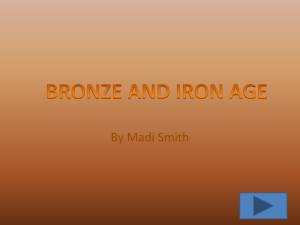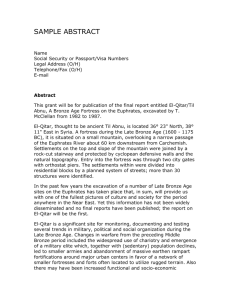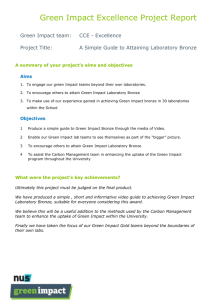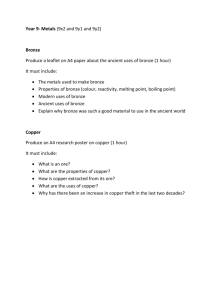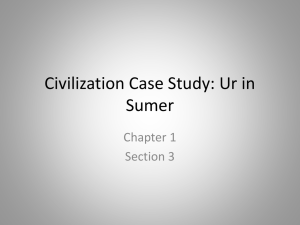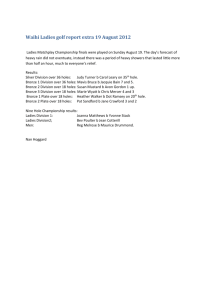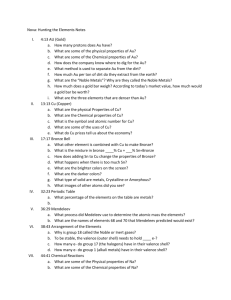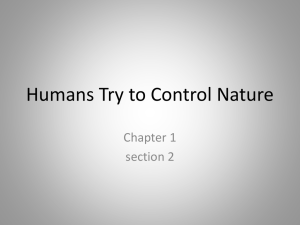Turner_82
advertisement
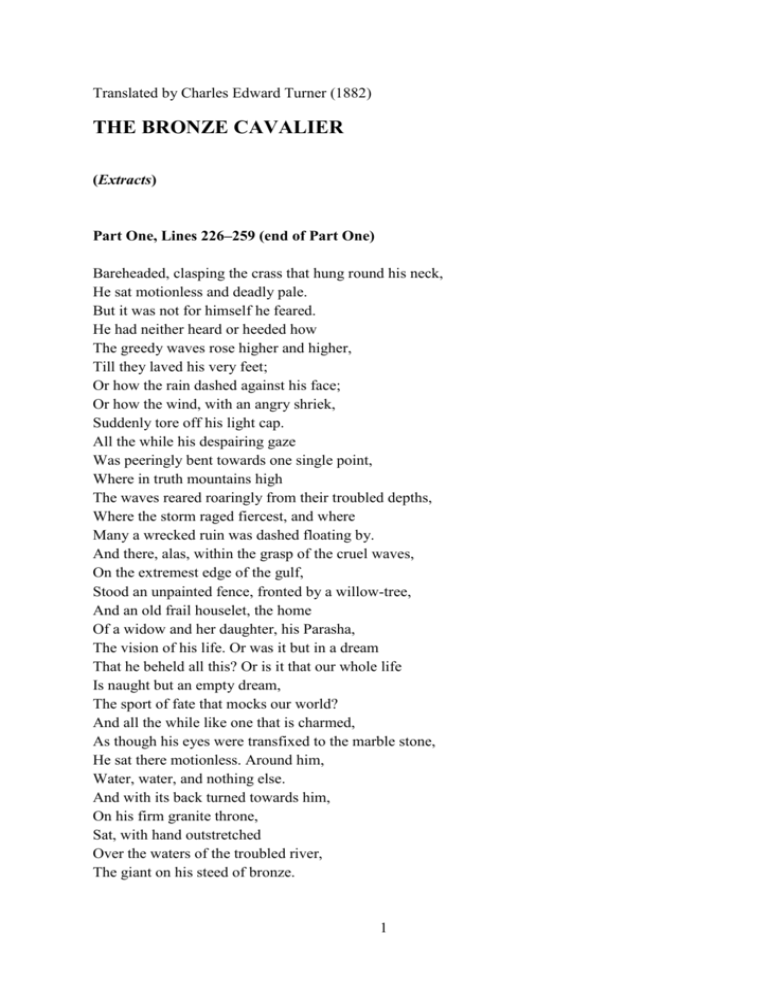
Translated by Charles Edward Turner (1882) THE BRONZE CAVALIER (Extracts) Part One, Lines 226–259 (end of Part One) Bareheaded, clasping the crass that hung round his neck, He sat motionless and deadly pale. But it was not for himself he feared. He had neither heard or heeded how The greedy waves rose higher and higher, Till they laved his very feet; Or how the rain dashed against his face; Or how the wind, with an angry shriek, Suddenly tore off his light cap. All the while his despairing gaze Was peeringly bent towards one single point, Where in truth mountains high The waves reared roaringly from their troubled depths, Where the storm raged fiercest, and where Many a wrecked ruin was dashed floating by. And there, alas, within the grasp of the cruel waves, On the extremest edge of the gulf, Stood an unpainted fence, fronted by a willow-tree, And an old frail houselet, the home Of a widow and her daughter, his Parasha, The vision of his life. Or was it but in a dream That he beheld all this? Or is it that our whole life Is naught but an empty dream, The sport of fate that mocks our world? And all the while like one that is charmed, As though his eyes were transfixed to the marble stone, He sat there motionless. Around him, Water, water, and nothing else. And with its back turned towards him, On his firm granite throne, Sat, with hand outstretched Over the waters of the troubled river, The giant on his steed of bronze. 1 Part Two, lines 320–324 And filled with foreboding fear, He roams round and round the empty place, Muttering loudly to himself, And then, striking his forehead with his hand, Breaks out into a shrill laugh. Part Two, lines 396–455 He found himself beneath the portico Of a spacious house. On the steps With paw up-raised, as real as life, Stood a lion, keeping guard; Whilst towering near in the shadow of the night On a huge pedestal of rock, The Giant, with hand outstretched, Sat on his steed of bronze. Evjenie shuddered. His thoughts Became strangely clear. He saw again The place where the torrent had wildly played, Where the raging waves had dashed In angry noise around him; He saw again the lion, the square, and him Whose bronze head motionless Towered above all in the darkness of the night, Ever with his hand far outstretched, As if proudly scanning the city that lay beneath. Tortured with wild woe, The poor crazed creature roamed round it, And read the plain-cut inscription on the rock, And his heart, crushed with its great grief, Grew dead within him. And then, he pressed His hot brow against the cold iron rail, A thick mist came over his eyes, And a cold tremble ran through his every limb, As he shuddered, and stood there, lost in gloom, Before Russia’s glorious hero; And, raising his finger towards him, He thought to speak. But instantly he took To headlong flight. For it seemed to him, The face of the terrible Tsar, Glowing with a moment’s spasm of anger, Slowly turned and fixed its gaze upon him. 2 In mad haste along the empty square He ran, and running heard behind him A tread as of thunder. And a heavy sharp tramp Over the road that shook beneath its march, As in the full light of the pale moon, With his hand high stretched out, The Bronze Cavalier pursued him On his steed with its sharp measured tramp. And all that night the poor crazed creature, Wherever he hurried his steps, Could hear close behind him the Bronze Cavalier, With the sharp measured tramp of his horse. From Charles Edward Turner, Studies in Russian Literature, London: Sampson Low, Marston, Searle & Rivington 1882; reprinted by Elibron Classics 2005, ISBN 1421210231. 3
